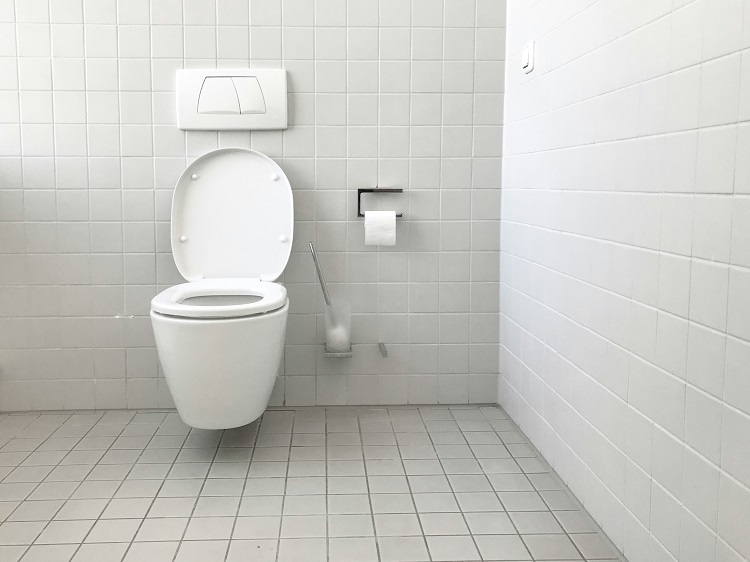Quality Sanitary Fittings Services

- Business Overview
Title: Quality Sanitary Fittings Services Business Model
Type: Service
Concept: Specialized installation, repair, and replacement of sanitary fittings such as sinks, faucets, showers, and toilets for both residential and commercial properties. - Key Services
Installation: Professional installation of a wide range of sanitary fittings including sinks, faucets, showers, and toilets.
Repair: Troubleshooting and repairing faulty sanitary fittings to restore functionality.
Replacement: Replacing old or damaged fittings with new, high-quality options. - Market Analysis
Target Market:
Homeowners and tenants in residential areas.
Property developers and real estate companies.
Commercial establishments such as hotels, restaurants, and office buildings.
Market Demand:
High demand for new constructions, renovations, and maintenance projects.
Increasing awareness of the importance of quality fittings and professional installation services.
- Capital Requirements
Initial Capital Investment:
Tools and Equipment Costs:
- Pipe Wrenches:
Prices range from Ksh 600 to 7,200, depending on size. - Pipe Cutters:
Cost: Ksh 2,900. - Adjustable Wrenches:
Prices range from Ksh 1,800 to 3,000, depending on size (8 inches to 12 inches). - Electrical Screwdrivers:
Cost: Ksh 15,000. - Screwdriver Set:
Cost: Ksh 1,290. - Drill:
Cost: Ksh 8,000. - Power Tools:
Prices start from Ksh 1,500 and above. - Waterproof Sealants and Tapes:
Cost: Ksh 3,500.
Initial Stock of Fittings:
- Faucets:
Prices range from Ksh 3,500 to 20,500, depending on the brand. - Showers:
Prices range from Ksh 2,500 and above, depending on size, material, and brand. - Toilet Suites:
Prices start from Ksh 10,000 and above, depending on size, brand, material, and make.
Plumbing Accessories:
- Duo Valves:
Cost: Ksh 1,000. - Valves:
Cost: Ksh 719. - WC Connectors:
Cost: Ksh 749. - Flex Connectors:
Prices range from Ksh 600 to 900, depending on size.
Marketing and Branding:
- Website development and online presence: Ksh 10,000.
- Initial marketing campaign (digital ads, flyers, local advertising): Ksh 5,000.
- Branding materials (business cards, uniforms, vehicle branding): Ksh 5,000.
Total Marketing Cost: Ksh 20,000.
Miscellaneous Costs:
Licenses, permits, and insurance: Ksh 20,000.
Initial working capital for operational expenses: Ksh 10,000.
Total Miscellaneous Cost: Ksh 30,000.
Total Initial Capital Needed: Ksh 60,000 – 70,000.
- Revenue Model
Service Charges:
Installation: Ksh 5,000 – 15,000 per installation, depending on the complexity.
Repair: Ksh 1,000 – 5,000 per repair, based on the issue and time required.
Replacement: Ksh 3,000 – 10,000 per replacement, depending on the type of fitting.
Service Contracts:
Offer maintenance contracts for regular inspections and upkeep of sanitary fittings in commercial properties.
Typical contract value: Ksh 20,000 – 50,000 per year per property.
- Profitability Analysis
Revenue Projections:
Monthly Revenue from Installations and Repairs: Ksh 50,000 – 100,000.
Monthly Revenue from Service Contracts: Ksh 20,000 – 40,000.
Estimated Monthly Revenue: Ksh 70,000 – 140,000.
Cost Analysis:
Monthly Operational Costs (salaries, transport, utilities): Ksh 20,000 – 30,000.
Monthly Cost of Goods Sold (stock replenishment): Ksh 5,000 – 10,000.
Marketing and Miscellaneous Monthly Expenses: Ksh 5,000 – 10,000.
Estimated Monthly Expenses: Ksh 30,000 – 50,000.
Net Profit Margin:
Estimated Monthly Profit: Ksh 20,000 – 90,000.
Annual Profit Projection: Ksh 240,000 – 1,080,000.
- Operational Plan ( optional)
Staffing Requirements:
Skilled Plumbers: 2-3 experienced professionals.
Sales and Customer Service Representative: 1.
Service Areas:
Initially focus on Nairobi and its surrounding areas, expanding to other regions based on demand.
Quality Assurance:
Regular training for staff on the latest plumbing technologies and best practices.
Establish partnerships with reputable suppliers for high-quality fittings and materials.
- Marketing and Sales Strategy
Online Presence:
Develop a professional website showcasing services, testimonials, and contact information.
Utilize social media platforms (Facebook, Instagram, LinkedIn) for promotions and customer engagement.
Local Marketing:
Distribute flyers and brochures in residential and commercial areas.
Collaborate with real estate agents and construction companies for referrals.
Customer Engagement:
Offer promotions and discounts for first-time customers.
Implement a customer loyalty program to encourage repeat business.
- Risk Analysis and Mitigation
Market Risks:
Economic downturns affecting construction and renovation projects.
High competition from established plumbing service providers.
Mitigation Strategies:
Diversify service offerings to include emergency plumbing and maintenance services.
Continuously improve service quality and customer satisfaction to build a strong reputation.
Operational Risks:
Equipment breakdowns and delays in material supply.
Mitigation through regular maintenance of tools and establishing reliable supply chains.
- Financial Projections
Break-even Analysis:
Estimated Break-even Point: 6-12 months, depending on market penetration and service uptake.
Profit and Loss Statement (Projected Annual):
Total Revenue: Ksh 840,000 – 1,680,000.
Total Expenses: Ksh 360,000 – 600,000.
Net Profit: Ksh 240,000 – 1,080,000.

